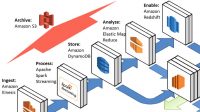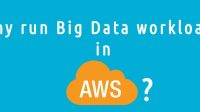Applications of Big Data Analytics
Marketing and Customer Analytics
Big data analytics helps businesses gain a deep understanding of their customers, their preferences, and their behaviors. By analyzing customer data, businesses can personalize marketing campaigns, optimize pricing strategies, and enhance customer experiences.
Supply Chain Optimization
Big data analytics enables businesses to optimize their supply chain operations. It helps identify inefficiencies, reduce costs, and improve inventory management. By analyzing supply chain data, organizations can streamline processes, enhance supplier relationships, and ensure timely deliveries.
Fraud Detection
In order to detect and prevent fraud, big data analytics is essential. By analyzing large volumes of transactional data, organizations can identify patterns and anomalies that indicate fraudulent activities. This helps in reducing financial losses and safeguarding the interests of businesses and customers.
Healthcare and Medical Research
In the healthcare industry, big data analytics aids in improving patient care, disease management, and medical research. Analyzing electronic health records, genomic data, and clinical trial results can lead to better diagnoses, personalized treatments, and the discovery of new medical insights.
Challenges in Big Data Analytics
While big data analytics offers immense opportunities, it also presents several challenges that organizations need to address:
Data Privacy and Security
As the volume of data increases, ensuring data privacy and security becomes crucial. Organizations must implement robust security measures to protect sensitive data from unauthorized access and potential breaches.
Data Quality and Integration
Big data analytics relies heavily on the quality and integration of data from various sources. Data inconsistencies, errors, and incomplete datasets can impact the accuracy and reliability of analytics outcomes. Organizations need to focus on data quality management and integration processes.
Scalability and Infrastructure
Processing and analyzing massive volumes of data require robust infrastructure and scalable systems. Organizations must invest in infrastructure that can handle the increasing data volumes and complexity.
Talent and Skills Gap
The shortage of skilled professionals in big data analytics poses a significant challenge. Organizations need to attract and retain data scientists, analysts, and experts with the necessary skills to derive insights from complex datasets.
Best Practices for Successful Big Data Analytics Implementation
To ensure a successful big data analytics implementation, organizations should consider the following best practices:
Define Clear Objectives
Clearly define the objectives and goals of the analytics initiative. Identify specific business problems or opportunities that can be addressed through big data analytics.
Identify Relevant Data Sources
Identify and gather relevant data from internal and external sources. Determine the types of data needed to achieve the desired outcomes and develop a data acquisition strategy.
Choose the Right Tools and Technologies
Select appropriate tools and technologies that align with the organization’s requirements and objectives. This includes choosing suitable data analytics platforms, programming languages, and visualization tools.
Build a Skilled Analytics Team
Recruit and build a team of skilled professionals with expertise in data analytics, machine learning, and statistics. Foster a collaborative environment where data scientists, analysts, and domain experts can work together to derive insights.
Ensure Data Quality and Governance
Implement robust data quality management processes to ensure the accuracy, completeness, and reliability of the data. Establish data governance practices to maintain data integrity and compliance with regulations.
The Future of Big Data Analytics
Artificial Intelligence and Machine Learning Integration
The integration of artificial intelligence (AI) and machine learning (ML) techniques with big data analytics will revolutionize the field. AI-powered algorithms can automate data analysis, enhance decision-making processes, and uncover complex patterns that humans may miss.
Edge Analytics and Real-time Insights
Edge analytics, where data is processed and analyzed closer to the data source, will become more prevalent. Real-time insights will enable organizations to make immediate decisions and respond rapidly to changing market conditions.
Ethical Considerations in Big Data Analytics
As big data analytics becomes more pervasive, ethical considerations around data privacy, transparency, and bias will come into focus. Organizations will need to prioritize ethical practices and ensure responsible use of data.
Continual Innovation and Advancements
Big data analytics will continue to evolve with advancements in technology and analytics techniques. New algorithms, tools, and frameworks will emerge, providing organizations with more sophisticated and efficient ways to extract insights from data.
Conclusion
Big data analytics has become a game-changer for businesses, enabling them to unlock valuable insights and drive data-driven decision making. By harnessing the power of advanced analytical techniques, organizations can uncover hidden patterns, optimize operations, and gain a competitive edge. However, successful implementation requires addressing challenges, adopting best practices, and staying abreast of the latest advancements in the field.





